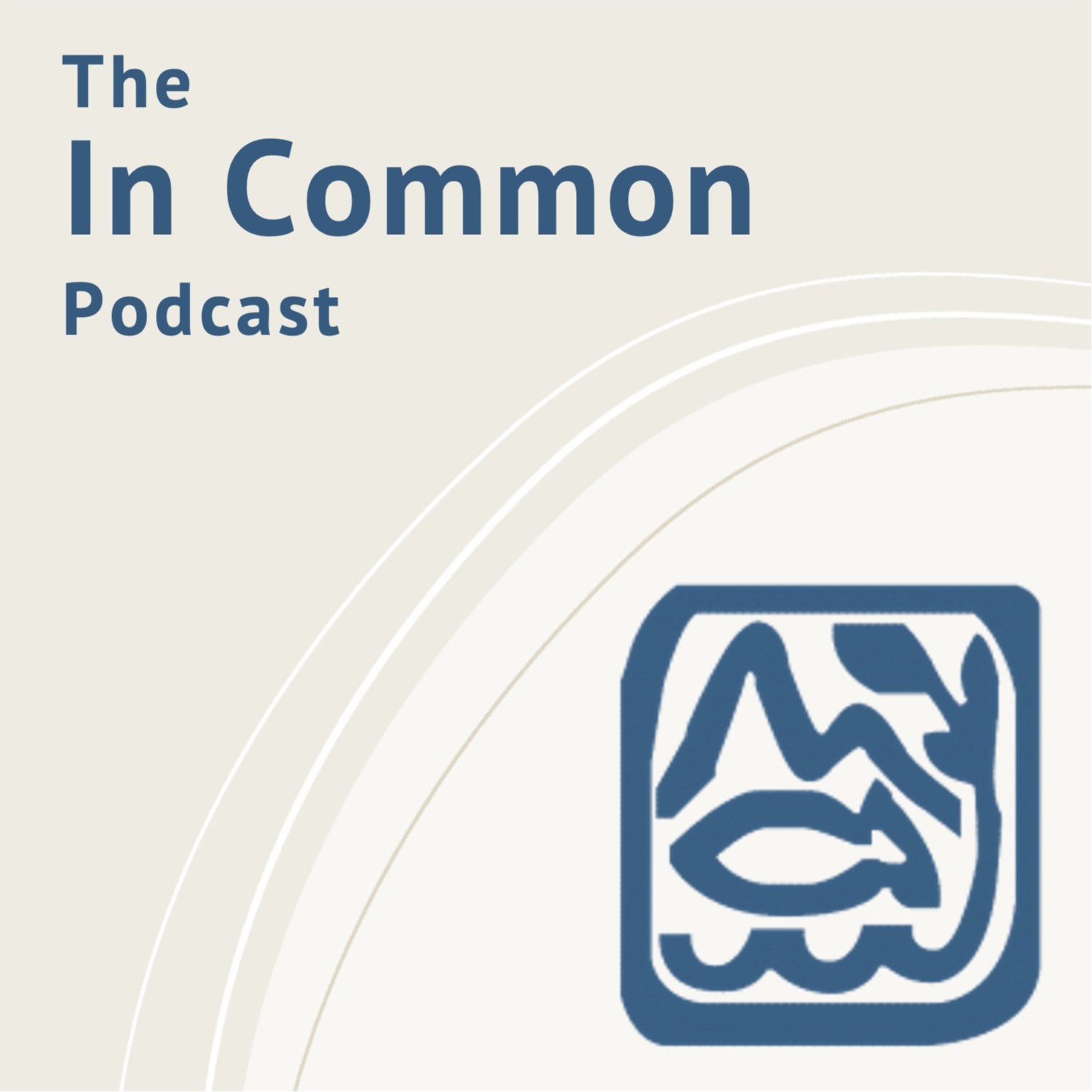
105.1K
Downloads
238
Episodes
In Common explores the connections between humans, their environment and each other through stories told by scholars and practitioners. In-depth interviews and methods webinars explore interdisciplinary and transdisciplinary work on commons governance, conservation and development, social-ecological resilience, and sustainability.
In Common explores the connections between humans, their environment and each other through stories told by scholars and practitioners. In-depth interviews and methods webinars explore interdisciplinary and transdisciplinary work on commons governance, conservation and development, social-ecological resilience, and sustainability.
Episodes

Friday Sep 27, 2024
129: Tree Plantations in Pakistan with Usman Ashraf
Friday Sep 27, 2024
Friday Sep 27, 2024
In this episode, Divya interviews Usman Ashraf, a PhD student at the Helsinki Institute of Sustainability Sciences at the University of Helsinki. His research focuses on forest governance and the complexities of the implementation of development policies in Pakistan. This discussion centers around Usman’s report on Pakistan’s ambitious "10 Billion Tree Tsunami" project, titled "Participation and Exclusion in a Mega-Tree Planting Project in Pakistan." The conversation explores how this massive reforestation initiative, aimed at combating climate change, has inadvertently disrupted the lives and livelihoods of the nomadic herder communities in the Khyber Pakhtunkhwa province.
Usman explains how the long-standing relationship between Pashtun landowners and the nomadic goat-herding communities has been disturbed by government incentives to plant trees, fundamentally altering these traditional dynamics. This episode goes beyond academic discussion to provide a deep dive into the real-world implications of climate mitigation projects on marginalized communities. Usman’s ethnographic insights reveal how large-scale plantation projects, often driven by political motives, can have significant ecological, social, and economic consequences.
Overall, the conversation highlights the complexities of such initiatives in the Global South, emphasizing the need to consider both ecological and socio-economic factors to ensure that development projects are genuinely sustainable and equitable.
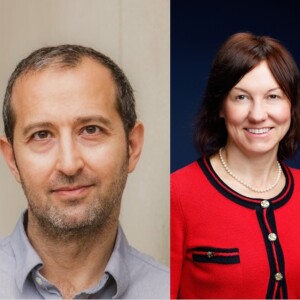
Monday Sep 23, 2024
Monday Sep 23, 2024
In this final episode in our series on the future of fisheries management, Michael speaks with two of the co-organizers of the initial meeting that led to this series. Ilia Murtazashvili is a professor in the Graduate School of Public and International Affairs at the University of Pittsburgh, where he also serves as the Associate Director at the Center for Governance and Markets. Christine McDaniel is a Senior Research Fellow at the Mercatus Center at George Mason University, which also has a central focus on markets and society.
Each guest discusses their respective careers and the academic centers where they work. Ilia introduces the concepts of polycentricity and polycentric governance and their relationship to large-scale commons dilemmas such as overfishing, while Christine helps to explain the role of the World Trade Organization in fisheries policy through its rules and fishing subsidies, which has been a central topic throughout this podcast series.
To conclude this series, we want to thank Garret Brown at the Mercatus Center, where he is the Senior Director for Publications. Garrett was on the zoom call for this interview and you’ll hear him mentioned him a few times.
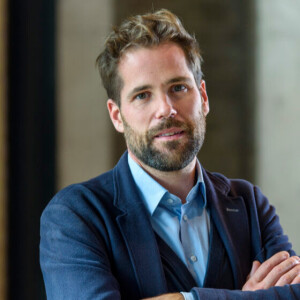
Wednesday Sep 04, 2024
128: Environmental justice with Brendan Coolsaet
Wednesday Sep 04, 2024
Wednesday Sep 04, 2024
In this episode, Stefan speaks with Brendan Coolsaet.
Stefan and Brendan discuss the history of environmental justice movements and scholarship, current frameworks, critical reflection on the field, transdisciplinary approaches, and the links the field has to activism. The also discuss environmental justice in the context of differen regions.
Brendan Coolsaet is a tenured Research Associate with the Belgian Fund for Scientific Research and a Research Professor at UCLouvain in Belgian. He is also the current Chair of the JUSTES research group on social and ecological justice, and an organizing committee member of the French Environmental Justice network.
Brendan refers to himself as an environmental social scientist studying environmental (in)justice in Europe. His research projects have focused on justice issues posed by the governance of agricultural biodiversity, the conservation of protected areas, the intensification of land-use changes, and the transformation of rural landscapes in Europe. He has also focused on diversifying the field of environmental justice research, both conceptually (beyond liberal approaches) and geographically.
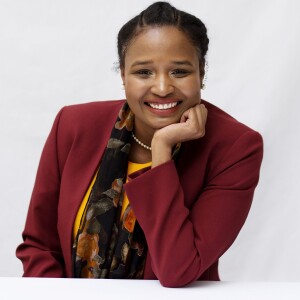
Thursday Aug 15, 2024
FFM #5: Negotiating with Kerrlene Wills
Thursday Aug 15, 2024
Thursday Aug 15, 2024
This is the fifth episode in our future fisheries management series, which we are running in collaboration with the Mercatus Center at George Mason University and the Center for Governance and Markets at the University of Pittsburgh.
Today’s guest, Kerrlene Wills, participated in the negotiation process for the 2022 World Trade Organization (WTO) agreement on fishing subsidies as a representative of the nation of Guayana, and has written about the resulting agreement. This is primarily aimed towards curbing subsidies for what is known as illegal, unreported and unregulated (IUU) fishing. It also tried curb the fishing of over-depleted populations, and vessels fishing on the unregulated high seas. A point that Kerrlene makes is that not all subsidies are the same, and therefore should not be subject to the same rules and constraints. The main category that Kerrlene highlights are subsidies that developing countries give to small-scale fishers, which are important for local livelihoods and which don’t necessarily lead to overfishing through overcaptilazition.
Kerrlene is currently the director of Ocean and Climate at the UN Foundation, and she discusses her current work with Michael, in which she is involved in efforts to decarbonize the global transportation industry trough some type of pricing mechanism along the lines of a carbon tax or a cap and trade scheme.
Resources:
Kerrlene’s website at the UN Foundation: https://unfoundation.org/author/kerrlene-wills/
Kerrlene’s article on fisheries subsidies: https://papers.ssrn.com/sol3/papers.cfm?abstract_id=4607279
WTO agreement on fisheries webpage: https://www.wto.org/english/tratop_e/rulesneg_e/fish_e/fish_e.htm
Guardian piece about the WTO agreement: https://www.theguardian.com/environment/2022/jun/21/first-wto-deal-on-fishing-subsidies-hailed-as-historic-despite-big-holes
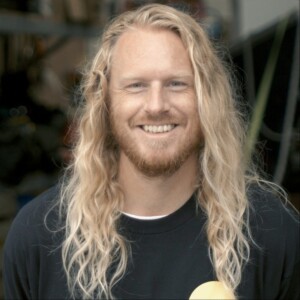
Monday Jul 29, 2024
127: The Healing Power of Virtual Nature with Alex Smalley
Monday Jul 29, 2024
Monday Jul 29, 2024
In this episode, Michael speaks with Alex Smalley, an expert in Environmental Psychology and researcher at the University of Exeter. Alex’s research program explores, in his words, “the cognitive and emotional impacts of virtual encounters with the natural world”. He has collaborated extensively with the BBC in the UK, including in the creation of a wonderful podcast entitled “The Healing Power of Nature”.
An important take-away from Alex’s work is that virtual experiences with nature can have a positive impact on our well-being, and that this effect is stronger for those with previous experiences with the natural environment itself. This undelies another important lesson, that virtual experiences in nature should be seen as an important complement of but not a substitute for the real world. But with many of us spending most of our time indoors, such a complement can prove to be very important, as Alex explains during the interview.
References:
Alex’s website: https://medicine.exeter.ac.uk/people/profile/index.php?web_id=Alexander_Smalley
Audible podcast: https://www.audible.com/podcast/The-Healing-Power-of-Nature/B0CLW481KM
Smalley, Alexander J., Mathew P. White, Rebecca Ripley, Timothy X. Atack, Eliza Lomas, Mike Sharples, Peter A. Coates, et al. 2022. “Forest 404: Using a BBC Drama Series to Explore the Impact of Nature’s Changing Soundscapes on Human Wellbeing and Behavior.” Global Environmental Change: Human and Policy Dimensions 74 (May): 102497. https://doi.org/10.1016/j.gloenvcha.2022.102497.
Smalley, Alexander J., Mathew P. White, Rebecca Sandiford, Nainita Desai, Chris Watson, Nick Smalley, Janet Tuppen, Laura Sakka, and Lora E. Fleming. 2023. “Soundscapes, Music, and Memories: Exploring the Factors That Influence Emotional Responses to Virtual Nature Content.” Journal of Environmental Psychology 89 (August): 102060. https://doi.org/10.1016/j.jenvp.2023.102060.
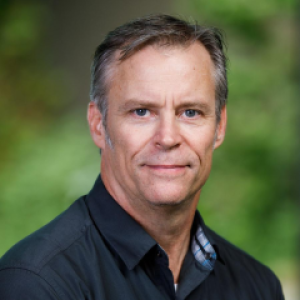
Monday Jun 17, 2024
126: Infrastructure for Sustainability with Marty Anderies.
Monday Jun 17, 2024
Monday Jun 17, 2024
In this episode, Michael talks with Marty Anderies, Professor in the School of Sustainability at Arizona State University.
They discuss a book that Marty co-authored with Marco Janssen, a colleague of his at Arizona State, entitled Infrastructure for Sustainability. The book is designed to introduce readers to the work of Elinor “Lin” Ostrom and her colleagues on the role of institutions in shaping behavior. Ostrom pioneered the study of institutions, particularly in context of the self-governance of resource-dependent communities. Marty discusses Lin’s work and the role that she played in his career.
The book also introduces readers to the work of Buzz Holling and his colleagues on the resilience of complex systems. Resilience is an important boundary concept, being used by multiple fields to describe the ability of a system to “bounce back” and sustain itself in a particular regime or state. It is related to but distinct from the idea of robustness, which relates the ability to maintain a desired system function in the face of disturbance and uncertainty. In the last half of the conversation, Michael and Marty try to unpack what these terms mean and how they can and should be used to understand our relationships with each other and the natural environment.
Finally, Marty also talks about the importance of the term infrastructure, which is similar to but different from the idea of capital as many people use it. In describing his preference for infrastructure, Marty has provided this quotation from Bowles and Gintis (2005) that has influenced his thinking:
"Perhaps social capital, like Voltaire’s God, would have to have been invented had it not existed. It may even be a good idea. It is not a good term. Capital refers to a thing that can be owned—even a social isolate like Robinson Crusoe had an axe and a fishing net. By contrast, the attributes said to make up social capital describe relationships among people. ‘‘Community’’ better captures the aspects of good governance that explain social capital’s popularity, as it focuses attention on what groups do rather than what people own" (Bowles and Gintis, 2005, p. 381).
References:
Bowles, S., & Gintis, H. (2005). Social capital, moral sentiments, and community governance. In Gintis, H., Bowles, S., Boyd, R., and Fehr, E., eds. Moral sentiments and material interests: The foundations of cooperation in economic life. Vol. 6. MIT press.
Janssen, M., and Anderies, J.M. 2023. Infrastructure for Sustainability. https://pressbooks.pub/cisi/

Monday May 13, 2024
FFM #4: Fisheries consulting with Andrew Johnson
Monday May 13, 2024
Monday May 13, 2024
This is the fourth episode in our Future Fisheries Management series, which we are running in collaboration with the Mercatus Center at George Mason University and the Center for Governance and Markets at the University of Pittsburgh.
In this episode, Michael speaks with Andrew Johnson, the CEO of MarFishEco, a consultant-based organization that provides advice and support for the future of sustainable, profitable fisheries. Andrew founded MarFishEco based on his experience with short term environmental consultancies that, in his terms, he felt were delivered "quickly but often without the rigor of academic research".
During the interview they discuss Andrew’s experience moving into and out of academia and his lessons from founding and running a consulting organization that brings theoretical and applied expertise to conservation challenges. And like each of the other guests in this series, Michael asks Andrew about the World Trade Organization’s role in fisheries policy through it’s recent agreements to limit the role of subsidies in this sector. This conversation is a bit dated now as since the time of recording, as the WTO has had a subsequent meeting on subsidies that is not reflected in our conversation. Check out the WTO's website for up-to-date information.
References:
Andrew’s website: https://www.marfisheco.com/
Website for WTO subsidy agreements: https://www.wto.org/english/tratop_e/rulesneg_e/fish_e/fish_e.htm
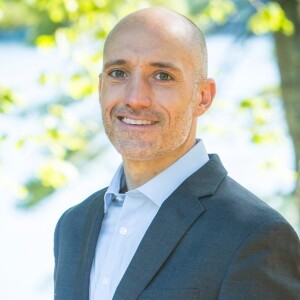
Tuesday Mar 19, 2024
125: Boundary spanning with Stephen Posner
Tuesday Mar 19, 2024
Tuesday Mar 19, 2024
In this episode, Michael speaks with Stephen Posner, the Director of Pathways to Planetary Health at the Garrison Institute. The Garrison Institute is located in Garrison, New York along the Hudson River. Its mission is to apply the skills and wisdom cultivated through contemplative practice, together with the insights emerging from science, to today’s urgent social and environmental challenges, leveraging transformational change and helping build a more compassionate, resilient future.
Stephen obtained his PhD in Natural Resources from the University of Vermont in 2015, and has maintained an active research program that among things has focused on the role of boundary spanners, or organizations that are able to bridge gaps between groups and perspectives. Stephen’s answer to the question, what makes a good boundary spanner, emphasizes the importance of what he calls “self attention work” and developing a self-awareness of the reasons behind one’s own actions. Stephen also speaks about the importance of contemplative practice which is a major theme of the Garrison institute, and the importance of combining contemplation with action.
References:
Posner, S., Fenichel E.P., McCauley, D.J., et al. 2020. Boundary spanning among research and policy communities to address the emerging industrial revolution in the ocean. Environmental Science and Policy 104: 73-81.
Neal, J., Posner, S., Brutzman, B. 2021. Understanding brokers, intermediaries, and boundary spanners: a multi-sectoral review of strategies, skills, and outcomes. Evidence & Policy.
Stephen’s recent blog entry on combining inner and outer change: https://www.garrisoninstitute.org/blog/integrating-inner-and-outer-systems-change/
Metamorphosis event page: garrisonmetamorphosis.org
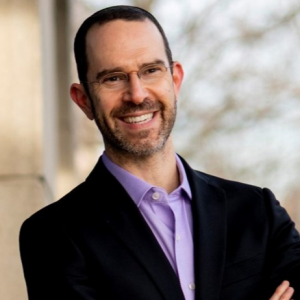
Monday Mar 11, 2024
124: Social capital and community resilience with Daniel Aldrich
Monday Mar 11, 2024
Monday Mar 11, 2024
In this episode, Stefan speaks with Daniel Aldrich. Daniel is a Professor of Political Science and Public Policy at Northeastern University in Boston. He received his PhD from Harvard University, and has published over 70 peer-reviewed articles and 5 books on topics related to social capital and community resilience in relation to disaster risk reduction, with a focus on public policy. He has been referred to as a ‘social capitalist’ given his wide ranging research and writing showing the value of building social capital with public policy and the essential role social capital plays in avoiding disasters caused by natural hazards.
In the episode we discuss Daniel’s personal experience having to evacuate his family during Hurricane Katrina in New Orleans in 2005, and the role that neighbors and informal networks played in helping his family navigate the loss of their home, and the role that government and markets did not play. We then discuss what the concept of social capital is, how to measure it effectively with inter-disciplinary methods and how public policy interventions can proactively build social capital in at-risk communities.
Daniel’s institutional profile page
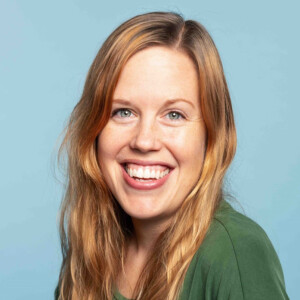
Monday Mar 04, 2024
123: Co-production and creativity with Josie Chambers
Monday Mar 04, 2024
Monday Mar 04, 2024
In this episode, Stefan speaks with Josephine Chambers. Josie is an Assistant Professor at Utrecht University in the Netherlands, situated within the Urban Futures Studio at the Copernicus Institute of Sustainable Development. Her research develops and examines approaches to questioning so-called ‘inevitable’ unjust futures and fostering collective imagination and agency towards more just and sustainable societies. She weaves together artistic, participatory, imaginative, decolonial concepts to collaboratively explore possibilities for transformative changes with diverse societal groups.
In the podcast, they speak about two papers Josie and colleagues published analyzing co-production research, one titled ‘Six modes of co-production for sustainability’’ published in Nature Sustainability and the other titled ‘Co-productive agility and four collaborative pathways to
sustainability transformations’ published in Global Environmental Change. They also discuss the role of creativity in science, and how linking art, creativity and science has potential to extract pluralistic sustainability narratives for just futures. Josie also explains how she brings her knowledge and passion for co-production and creativity into the classroom to reshape learning and student engagement.
Six modes of co-production for sustainability
Co-productive agility and four collaborative pathways to sustainability transformations
https://www.sciencedirect.com/science/article/pii/S0959378021002016
Josie’s ‘Urban Pulses’ blog
https://www.uu.nl/en/research/urban-futures-studio/initiatives/blog-utopian-pulses
Josie’s ‘Map of Rural Utopias’
